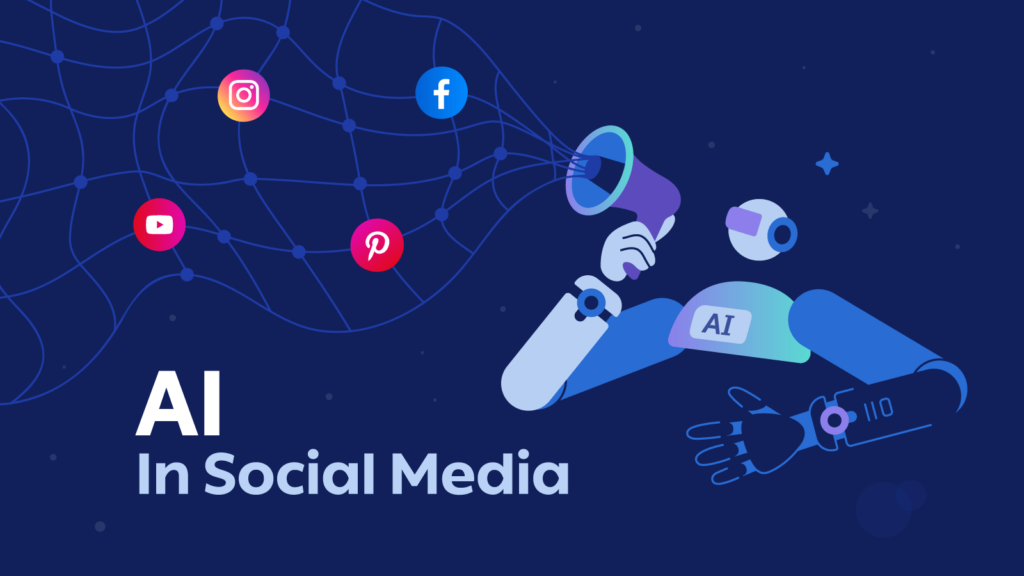
The Evolution of AI in Social Media: Transforming Connections and Content
In the ever-evolving landscape of technology, few advancements have had as profound an impact as artificial intelligence (AI). Among the realms where AI’s influence is most palpable is social media—a platform that has redefined how we communicate, socialize, and share information. From personalized content feeds to advanced algorithms that monitor user behavior, AI is not just a tool for social media platforms but a transformative force that is reshaping our digital interactions.
The Role of AI in Content Curation
One of the most visible impacts of AI in social media is its role in content curation. Traditionally, users would sift through their timelines to find posts of interest. However, AI has changed the game with algorithms that analyze vast amounts of data to present users with tailored content. By studying user interactions—likes, shares, comments, and even the time spent on posts—AI systems can predict what kind of content a user is most likely to engage with.
For instance, platforms like Facebook, Instagram, and TikTok employ complex algorithms to curate feeds that feel personal and relevant. This not only keeps users engaged but also enhances the user experience. The downside, however, is the risk of creating echo chambers, where users are only exposed to viewpoints and information that reinforce their existing beliefs.
Enhancing User Engagement
AI technologies are also instrumental in enhancing user engagement. Chatbots, powered by natural language processing (NLP), provide immediate responses in social media messaging apps, allowing brands to maintain continuous conversations with their audiences. This instant feedback mechanism not only boosts customer satisfaction but also builds brand loyalty. For instance, companies can use chatbots on platforms like Facebook Messenger to answer FAQs, process orders, and even provide personalized product recommendations.
Moreover, AI-driven analytics tools can help brands understand user sentiment and engagement better. By analyzing comments and interactions, businesses can glean insights into what resonates with their audience. This feedback loop allows companies to adjust their strategies in real-time, making their social media marketing efforts more effective.
The Rise of User-Generated Content (UGC)
AI not only assists brands but also encourages the creation of user-generated content (UGC). Platforms leverage AI tools to facilitate the discovery and showcasing of UGC, which has become a cornerstone of effective marketing strategies. For example, Instagram uses AI to identify relevant user-generated posts and feature them on brand pages or in advertising campaigns.
The value of UGC lies in its authenticity. Consumers are more likely to trust their peers’ opinions over conventional advertising. AI helps brands tap into this goldmine of content by providing tools that make it easier for users to share their experiences and stories—a trend that has only intensified the sense of community among social media users.
Tackling Content Moderation
While AI has dramatically improved the social media experience, it also brings challenges, particularly in the realm of content moderation. The sheer volume of content generated on platforms like Twitter, Instagram, and YouTube makes it nearly impossible for humans to monitor everything. AI systems are employed to detect and address harmful content, including hate speech, misinformation, and explicit material.
However, the implementation of AI in content moderation is a double-edged sword. While it can effectively identify and remove violating content, it can also lead to censorship of legitimate speech if not finely tuned. Moreover, biases in AI algorithms can perpetuate the very issues they are meant to address. Platforms need to invest in refining their models to strike a balance between free expression and the protection of users from harmful content.
Personalization and Privacy
The personalized experience that AI brings to social media has raised concerns regarding user privacy. AI systems track user behavior to serve personalized ads and content, creating a more engaging experience. Users might find tailored ads convenient, but many are uneasy about how their data is collected and used. The Cambridge Analytica scandal serves as a stark reminder of the potential pitfalls of data misuse in social media.
As regulatory scrutiny increases, platforms must prioritize transparency and give users control over their data. Striking this balance will be crucial for maintaining user trust while leveraging AI to enhance the social media experience.
AI Influencer Marketing
Another fascinating development in social media is the rise of AI-generated influencers. Brands are beginning to collaborate with virtual influencers—computer-generated characters designed to simulate human behavior and personality. These AI entities can engage with audiences, promote products, and generate content, all while eliminating human error or inconsistency.
While this trend raises ethical questions about authenticity and representation, it offers brands innovative ways to engage audiences. AI influencers can be programmed to align with a brand’s values and messaging, creating seamless marketing strategies that resonate with specific demographics.
The Future of AI in Social Media
Looking ahead, the role of AI in social media will only grow. As technology advances, we can expect more sophisticated AI tools that enhance user experiences and streamline social media management for brands. Machine learning algorithms will become better at predicting user preferences and trends, allowing platforms to deliver content that is even more relevant.
At the same time, ethical considerations will remain at the forefront of discussions surrounding AI. As platforms navigate issues of data privacy, algorithmic bias, and content moderation, the challenge will be to implement AI responsibly without stifling the creativity and authenticity that make social media so compelling.
AI has already reshaped the social media landscape in profound ways. From content curation and user engagement to challenges in moderation and ethical considerations, AI’s impact is far-reaching. As we move forward, it will be crucial for platforms, brands, and users to collaborate in harnessing AI’s potential while addressing its pitfalls. A future where AI supports genuine connections and inclusivity on social media is one worth striving for, and it’s a journey we are all a part of as we continue to navigate this digital age.

Leave a Reply